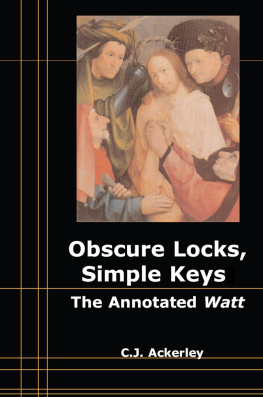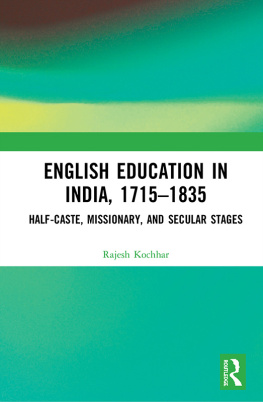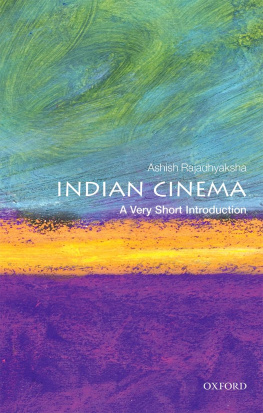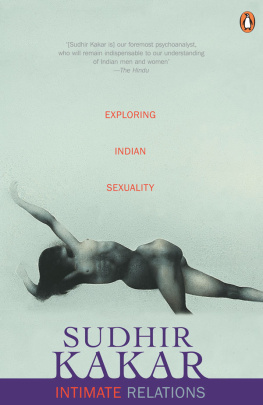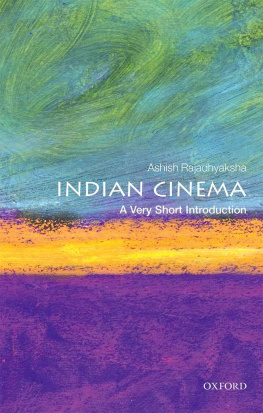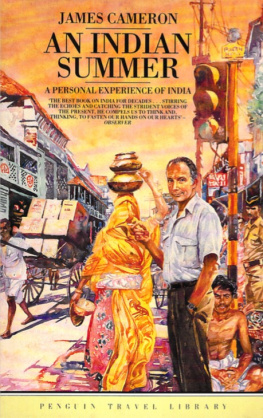Ackerley - Hindoo holiday: an Indian journal
Here you can read online Ackerley - Hindoo holiday: an Indian journal full text of the book (entire story) in english for free. Download pdf and epub, get meaning, cover and reviews about this ebook. City: London;India, year: 2009, publisher: Penguin Books Ltd, genre: Detective and thriller. Description of the work, (preface) as well as reviews are available. Best literature library LitArk.com created for fans of good reading and offers a wide selection of genres:
Romance novel
Science fiction
Adventure
Detective
Science
History
Home and family
Prose
Art
Politics
Computer
Non-fiction
Religion
Business
Children
Humor
Choose a favorite category and find really read worthwhile books. Enjoy immersion in the world of imagination, feel the emotions of the characters or learn something new for yourself, make an fascinating discovery.

- Book:Hindoo holiday: an Indian journal
- Author:
- Publisher:Penguin Books Ltd
- Genre:
- Year:2009
- City:London;India
- Rating:3 / 5
- Favourites:Add to favourites
- Your mark:
- 60
- 1
- 2
- 3
- 4
- 5
Hindoo holiday: an Indian journal: summary, description and annotation
We offer to read an annotation, description, summary or preface (depends on what the author of the book "Hindoo holiday: an Indian journal" wrote himself). If you haven't found the necessary information about the book — write in the comments, we will try to find it.
Ackerley: author's other books
Who wrote Hindoo holiday: an Indian journal? Find out the surname, the name of the author of the book and a list of all author's works by series.
Hindoo holiday: an Indian journal — read online for free the complete book (whole text) full work
Below is the text of the book, divided by pages. System saving the place of the last page read, allows you to conveniently read the book "Hindoo holiday: an Indian journal" online for free, without having to search again every time where you left off. Put a bookmark, and you can go to the page where you finished reading at any time.
Font size:
Interval:
Bookmark:
J. R. ACKERLEY
Hindoo Holiday
An Indian Journal

PENGUIN CLASSICS
Published by the Penguin Group
Penguin Books Ltd, 80 Strand, London WC2R 0RL , England
Penguin Group (USA) Inc., 375 Hudson Street, New York, New York 10014, USA
Penguin Group (Canada), 90 Eglinton Avenue East, Suite 700, Toronto, Ontario, Canada M4P 2Y3
(a division of Pearson Penguin Canada Inc.)
Penguin Ireland, 25 St Stephens Green, Dublin 2, Ireland (a division of Penguin Books Ltd)
Penguin Group (Australia), 250 Camberwell Road, Camberwell, Victoria 3124, Australia
(a division of Pearson Australia Group Pty Ltd)
Penguin Books India Pvt Ltd, 11 Community Centre, Panchsheel Park, New Delhi 110 017, India
Penguin Group (NZ), 67 Apollo Drive, Rosedale, North Shore 0632, New Zealand
(a division of Pearson New Zealand Ltd)
Penguin Books (South Africa) (Pty) Ltd, 24 Sturdee Avenue, Rosebank, Johannesburg 2196, South Africa
Penguin Books Ltd, Registered Offices: 80 Strand, London WC2R 0RL , England
www.penguin.com
First published in Great Britain by Chatto & Windus 1932
Published in Penguin Classics 2009
Copyright 1932, 1952 by the Trustees of the J. R. Ackerley Fund
Copyright renewed J. R. Ackerley, 1960
All rights reserved
Except in the United States of America, this book is sold subject to the condition that it shall not, by way of trade or otherwise, be lent, re-sold, hired out, or otherwise circulated without the publishers prior consent in any form of binding or cover other than that in which it is published and without a similar condition including this condition being imposed on the subsequent purchaser
ISBN: 978-0-14-190003-2
Hindoo Holiday
J. R. Ackerley was born at Herne Hill, Kent, in 1896 and educated at Rossall School and Magdalene College, Cambridge, from where he graduated in 1921. The following year he met E. M. Forster, and there developed between the two a friendship which Ackerley described as the longest, closest and most influential of his life. It was through Forsters influence that in 1923 Ackerley left for India for five months to serve as Private Secretary to the Maharajah of Chhokrapur, which resulted in Hindoo Holiday. From 1928 to 1935 he worked for the BBC as an assistant producer for the Talks Department and thenceforth, until his retirement in 1959, as literary editor of the Listener. His published works include a play, The Prisoners of War (1925); My Dog Tulip (1956) described by Christopher Isherwood as one of the greatest masterpieces of animal literature; We Think the World of You (1960) which won the W. H. Smith Annual Literary Award; and the posthumous family memoir My Father and Myself (1968), which Roy Fuller acclaimed as a masterpiece of autobiography, to be ranked with Gide. When Ackerley died in 1967 he left a large parcel of intimate journals to Francis King. Selections from these spanning the years 1948 to 1957 were published in 1982 under the title My Sister and Myself: The Diaries of J. R. Ackerley.
Hindoo Holiday grew out of Ackerleys stay in India. Superbly entertaining and beautifully written, it has received considerable critical acclaim. Francis King observed that it is even more entertaining than Forsters own The Hill of Devi, while V. S. Pritchett commented His humour is the humour of pity and love. He is an artist of understanding.
To
My Mother
W HEN this journal was first offered for publication it was thought necessary to make a number of omissions. Nearly twenty years have passed since then, and the State of Chhokrapur, if indeed it ever existed, has dissolved away in the new map of India. I have therefore taken the opportunity afforded me by this new edition to restore most of the omissions and work in a little extra material.
J. R. A.
March 1952
His Highness the Maharajah Sahib of Chhokrapur
The Dewan (or Prime Minister) Sahib
Babaji Rao, The Secretary Sahib
Abdul Haq, my Tutor
Narayan, the Guest House Clerk
Sharma, his friend, valet to the Maharajah
Hashim, the Guest House waiter
Habib, my servant
H E wanted some one to love himHis Highness, I mean; that was his real need, I think. He alleged other reasons, of coursean English private secretary, a tutor for his son; for he wasnt really a bit like the Roman Emperors, and had to make excuses.
As a matter of fact he had a private secretary already, though an Indian one, and his son was only two years old; but no doubt he felt that the British Raj, in the person of the Political Agent who kept an eye on the State expenditure and other things, would prefer a labelany of the tidy buff labels that the official mind is trained to recognise and understandto being told, I want some one to love me. But that, I believe, was his real reason nevertheless.
He wanted a friend. He wanted understanding, and sympathy, and philosophic comfort; and he sent to England for them. This will seem strange to many people who have always understood that Wisdom dwells in the East; but he believed that it abode in the Westand perhaps I should add that he had never been there. There are, of course, quite a number of Britishers already living in India; but I dont think he ever entertained any serious expectation of finding what he wanted among them. Nothe pure, unsullied fountain-head; he must go to thatand that was how it happened.
Some one who had met him there said to me: Why dont you go out to him?
Are there any qualifications? I asked.
Yes, he wants some one like a character named Olaf in The Wanderers Necklace by Rider Haggard.
So I went.
This isnt a history of India. About all that I knew of that country when I sailed for it was what I was able to recollect from my schooldaysthat there had been a mutiny there, for instance, and that it looked rather like an inverted Matterhorn on the map, pink because we governed it. My knowledge, in short, was not exhaustive; it is not exhaustive now. In that muddled land, I am toldfor I did not have the opportunity to travel far or muchthere is no uniformity; racial, religious, and caste distinctions have severed one man from another, and language, dress, custom, and superstition vary from place to place.
This journal, then, which developed day by day out of almost complete ignorance, and for whose accuracy in fact, since I was depending solely upon my memory, I cannot therefore vouchthis journal, then, concerns itself exclusively with the small Hindoo native state of Chhokrapur (a name for which, since I have just invented it, it will be idle to explore the map)and it does not pretend to have exhausted even that.
C HHOKRAPUR has no railway station. The nearest is at Dipra thirty-five miles away, and there the Maharajahs car was awaiting me. It was manned by a very fat chauffeur and a small boy. With me was a black-bearded Mohammedan, servant to His Highness, who had met me at an earlier stage in my journey with a letter of instructions.
We drove off, passing about midway through Rajgarh, the nearest British Cantonment to Chhokrapur, and residence of the Political Agent.
A sudden turn from the main road, which seemed to skirt the town, brought us through white gates up a long red-gravel drive on to this small conical hill. The hill is flattened at the top to form a plateau, and is appended, like the full-stop in an exclamation mark, to a long rocky ridge which rises in a gradual incline to the south. There are two houses on the plateau, one big and one small, and I was set down in front of the latter. This was to be my abode for some months, so as soon as I arrived I made a tour of inspection. It did not take long. I found an oblong, one-storeyed building, with thick walls whitewashed inside and out. There were two communicating rooms, two verandahs, one in front and the other behind, and an outhouse bathroom in a corner of the back porch, from which stone steps led down to a small walled courtyard at the foot of the stony ridge. There were no windows, but five doorways, one from each room to each verandah, and one between the two rooms. The house was simply furnished. Canvas carpets, striped blue and red, covered both the floors, and across the thresholds of the open doorways long linen curtains of a rose pattern floated in the breeze. A round table and three chairs completed the sitting-room; in the other was a gigantic iron bedstead and a small table with a mirror on it. The outhouse contained a bath-tub on a wooden platform, some large earthenware water-vessels, a po, a close-stool, and a washstand. The washstand contained a little water and a drowned mouse.
Next pageFont size:
Interval:
Bookmark:
Similar books «Hindoo holiday: an Indian journal»
Look at similar books to Hindoo holiday: an Indian journal. We have selected literature similar in name and meaning in the hope of providing readers with more options to find new, interesting, not yet read works.
Discussion, reviews of the book Hindoo holiday: an Indian journal and just readers' own opinions. Leave your comments, write what you think about the work, its meaning or the main characters. Specify what exactly you liked and what you didn't like, and why you think so.

